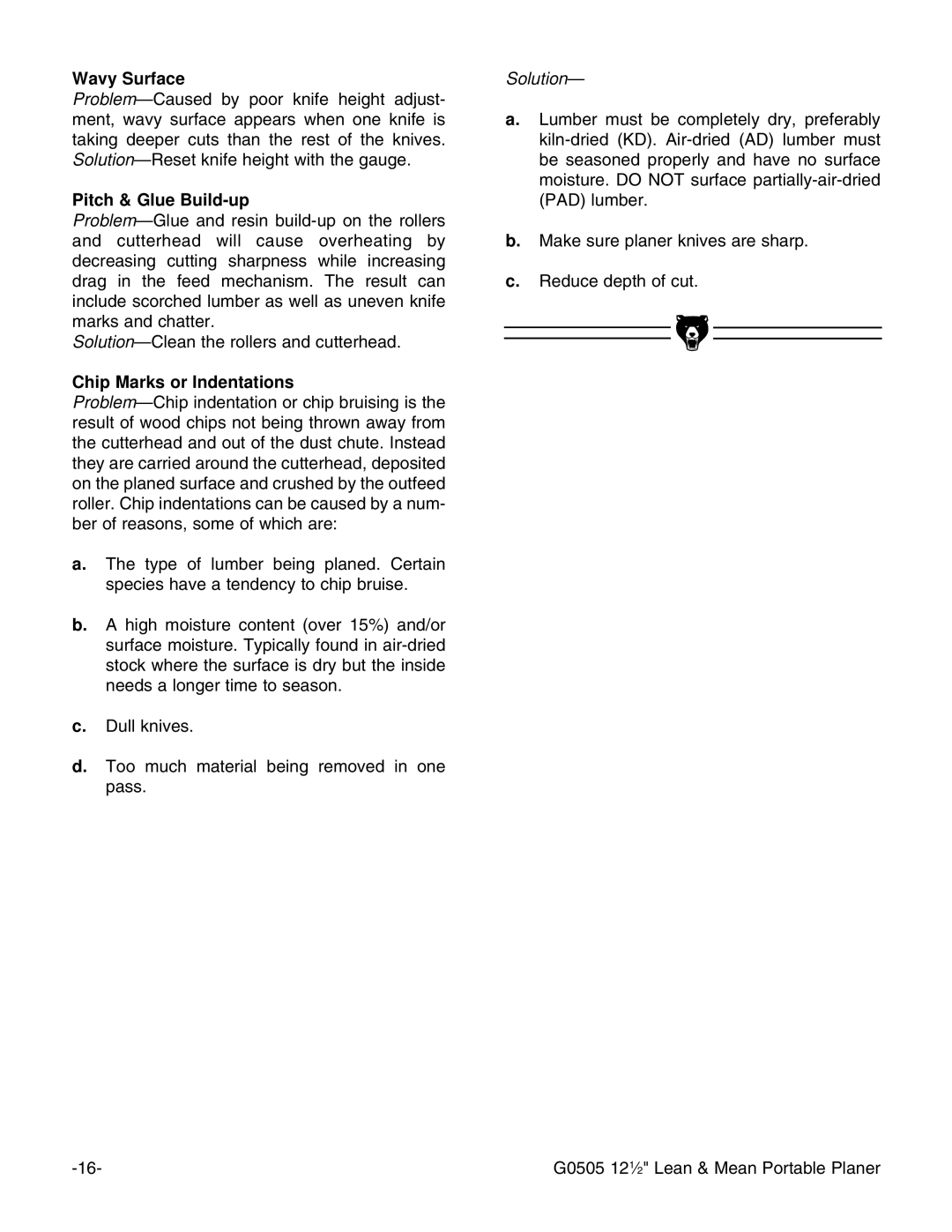Wavy Surface
Problem—Caused by poor knife height adjust- ment, wavy surface appears when one knife is taking deeper cuts than the rest of the knives. Solution—Reset knife height with the gauge.
Pitch & Glue Build-up
Problem—Glue and resin build-up on the rollers and cutterhead will cause overheating by decreasing cutting sharpness while increasing drag in the feed mechanism. The result can include scorched lumber as well as uneven knife marks and chatter.
Solution—Clean the rollers and cutterhead.
Chip Marks or Indentations
Problem—Chip indentation or chip bruising is the result of wood chips not being thrown away from the cutterhead and out of the dust chute. Instead they are carried around the cutterhead, deposited on the planed surface and crushed by the outfeed roller. Chip indentations can be caused by a num- ber of reasons, some of which are:
a.The type of lumber being planed. Certain species have a tendency to chip bruise.
b.A high moisture content (over 15%) and/or surface moisture. Typically found in air-dried stock where the surface is dry but the inside needs a longer time to season.
c.Dull knives.
d.Too much material being removed in one pass.
Solution—
a.Lumber must be completely dry, preferably kiln-dried (KD). Air-dried (AD) lumber must be seasoned properly and have no surface moisture. DO NOT surface partially-air-dried (PAD) lumber.
b.Make sure planer knives are sharp.
c.Reduce depth of cut.
